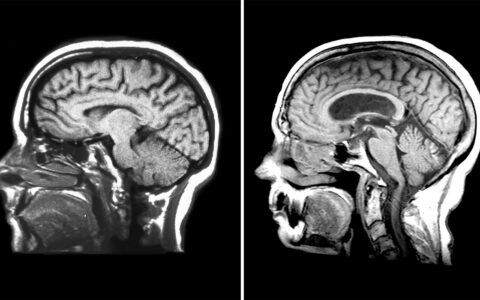A new study published in Neurology provides the first evidence that deep brain stimulation (DBS) administered to patients with very early-stage Parkinson’s disease (PD) may slow the progression of rest tremor. The study used post hoc analysis of a pilot clinical trial conducted at Vanderbilt University Medical Center from 2006 to 2012, controversial at the time for applying DBS to treat early-stage PD patients.
“Since this was the first early-DBS trial, it was unknown whether there were individual motor symptoms very early in Parkinson’s disease that may be more potently improved by DBS,” said Mallory Hacker, Ph.D., research assistant professor at Vanderbilt University Medical Center and the Neurology study’s lead author.
“This work will provide valuable longitudinal information to the Parkinson’s disease community from the only prospectively-followed group of patients to receive DBS in the earliest stages of the disease.”
Hacker has now received funding for a follow-up study of these early-DBS patients. Seventeen participants in the original study will return to Vanderbilt to be re-evaluated. Researchers will collect long-term outcomes on this unique cohort who joined the original trial a decade ago. The protocols for the testing will be the same as they were in the original trial, with new PET imaging added to the follow-up study to explore metabolic brain networks associated with motor and cognitive features of PD.
“This work will provide valuable longitudinal information to the Parkinson’s disease community from the only prospectively-followed group of patients to receive DBS in the earliest stages of the disease,” Hacker said.
Results of the Pilot Trial
The 2006 trial randomized 30 early-stage patients, half of whom underwent DBS surgery in addition to Optimal Drug Therapy (ODT), with the other half receiving ODT only. Participants agreed to be taken off their medication or medication/DBS during regular “wash out” evaluations to assess progression of their PD. An outside evaluator scored the patients, observing videotapes that were presented out of chronological order and without information about treatment assignment or therapy status.
The DBS group scored on average better on overall motor function tests than the group receiving only ODT. While 86 percent of patients receiving only ODT developed rest tremor in previously unaffected limbs over the course of the study, this occurred in only 46 percent of patients receiving DBS in addition to ODT. Four patients in the DBS group had rest tremor improvement, and in one DBS patient rest tremor completely disappeared from all affected limbs.
“The finding around tremor is truly exceptional,” said David Charles, M.D., professor and vice-chair of Neurology at Vanderbilt and lead investigator of the pilot trial. “What it suggests is that DBS applied in early stage Parkinson’s disease may slow the progression of tremor. Why it is so remarkable is because there are no treatments for Parkinson’s that have been proven to slow the progression of any element of the disease.”
New Phase 3 Trial to Begin Next Year
The FDA has approved Vanderbilt to lead the next early-DBS trial, a large-scale, Phase 3 multicenter study of DBS in early-stage PD. The new study is expected to begin in 2019 and will enroll 280 people with very early-stage PD. Seventeen other U.S. medical centers have agreed to participate in the Phase 3 trial and have joined the DBS in Early Stage Parkinson’s Disease Study Group. Hacker serves as executive director of the Study Group.
“This study will help us understand how long-term, early application of DBS therapy influences Parkinson’s disease-related metabolic brain networks,” Hacker said.
“The field of DBS therapy for Parkinson’s disease is moving toward earlier stages of treatment,” Charles said. “Therefore, we must conduct the pivotal trial to ensure patient safety and provide the Parkinson’s community with the best possible medical evidence to guide treatment.”






